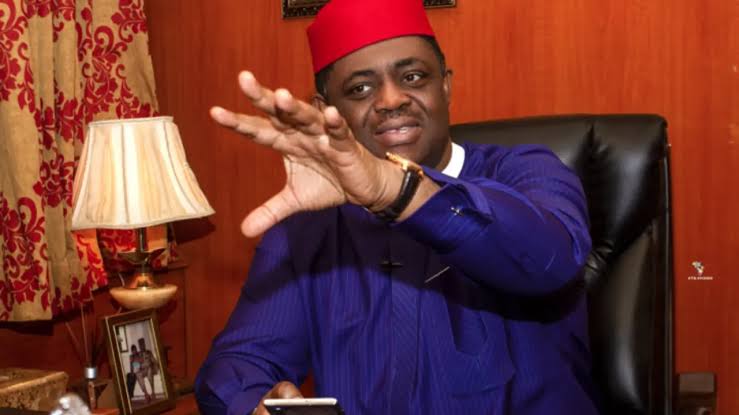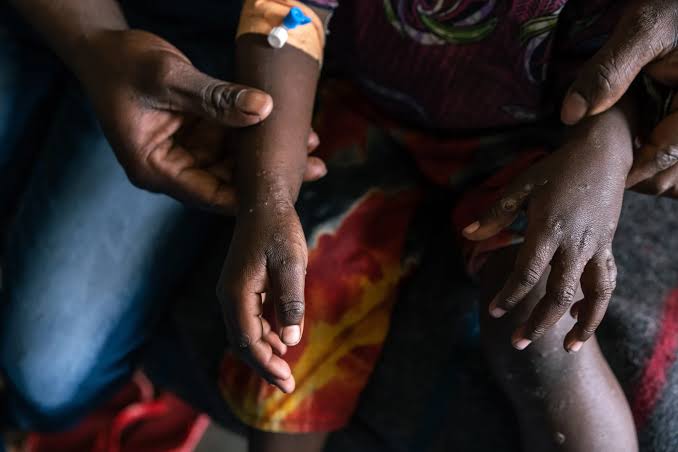Metro
Independent media under siege: Challenges persist despite promises of press freedom
Published
5 months agoon
By
Isaac Dachen
The introduction of multiparty democracy in Zambia in 1991 by the Movement for Multiparty Democracy (MMD) also saw the emergence of independent media houses such as Radio Phoenix, Choice FM, and The Post Newspapers.
These outlets have since played a crucial role in the country’s democracy by holding those in power accountable.
Independent media like Radio Phoenix and The Post Newspapers were instrumental in advancing investigative journalism and critical reporting on government actions and policies.
However, their efforts have not been without challenges.
Before and after assuming office, President Hakainde Hichilema and his officials in the Ministry of Information and Media have repeatedly assured the nation of a free media environment, free from harassment and intimidation.
During his inauguration in August 2021, President Hichilema declared that the media would operate independently.
“The fourth estate, as I said, the media will be freed. For you, the media, you will be truly free; you will operate independently without looking over your shoulder, who is teargassing you, who is shutting down your radio station, who is shutting down your television station because you said something that we do not like. It is your role to self-regulate; it is your role to report fairly, responsibly so you can build this society to be at a level never seen before. That is your responsibility.
“Responsibility comes with obligation. Sort out the mess amongst yourselves, but you have to have the freedom to do that,” President Hichilema stated, adding that the media would coordinate with other sectors to actualise his vision for Zambia.
Despite their role in providing diverse perspectives and fostering informed public discourse, independent media houses continue to face significant challenges.
These included government restrictions, censorship, political pressure, limited resources, inadequate funding, concerns over media ownership and control, and online harassment from ruling party members.
A recent incident involved Mpika-based, Catholic-owned Yusuf Radio, which was stormed by suspected cadres on August 25, 2024.
The cadres intended to disrupt a political radio programme scheduled to feature opposition leader Harry Kalaba.
MISA Zambia Chairperson, Lorraine Mwanza-Chisanga, condemned the action, calling it an affront to freedom of expression as provided for in the Zambian Constitution under Article 20, as well as international laws to which Zambia was a signatory.
“Such actions are not only a threat to democracy but also to the role of the media in facilitating democracy. We call on the authorities to bring to book the culprits behind this unruly behavior in order to prevent future occurrences,” Mwanza-Chisanga said.
In another incident in Lusaka, unknown individuals broke into KBN Television and stole studio equipment and laptops worth K260,000, according to police reports.
KBN Television Chief Executive Officer, Kennedy Mambwe, described the theft as an assault on press freedom.
“This is a very sad day for us at KBN TV but also a very sad day for the media in Zambia. It is quite unprecedented that armed robbers could break into a TV station in the dead of night and take sensitive electronic equipment that we use for live transmission,” Mambwe stated.
In 2024, an alleged UPND cadre named Vincent Ngandu threatened to set Diamond TV on fire in a Facebook post, writing, “Diamond TV, you are irritating to say the least. Don’t invite demons upon ourselves. One day you will find that station on petrol fire. Diamond TV Zambia, you are promoting anarchy in the country.”
During an interview on Diamond TV, the station’s Chief Visionary Officer, Costa Mwansa, expressed frustration with Ministry of Information and Media Permanent Secretary, Thabo Kawana, for referring to him as “notorious.”
Mwansa was questioning Kawana on why he had threatened to close down certain media houses, despite having been a victim of media suppression under the previous administration.
Defending his remarks, Kawana said media houses should take his words as a “kind reminder to be careful.”
When Mwansa pressed further, Kawana accused him of being notorious for suggesting that he was threatening media houses.
Respected academician, Dr. Sishuwa Sishuwa, in 2023, accused State House of threatening privately-owned Hot FM radio for featuring him on their morning show.
According to his tweet, Sishuwa claimed, “State House Communications Expert, Clayson Hamasaka, called the radio station and complained against him.”
Days later, the Independent Broadcasting Authority (IBA) wrote to Hot FM expressing displeasure with one of the anchors on the programme, a complaint that was dismissed by the station’s management.
On November 27, 2023, MISA Zambia reported an attempt to disrupt a live programme on Mazabuka Radio during the “Community Issues” breakfast show.
The programme, dedicated to discussing various community matters in Mazabuka, was allegedly interrupted by UPND cadres.
These incidents are just a few examples of the ongoing threats faced by independent media houses that, on a daily basis, expose corruption, wrongdoing, and hold those in power accountable.
Several stakeholders have called for the strengthening of independent media in Zambia by supporting them through funding and resources, promoting media literacy and critical thinking, and advocating for press freedom and the protection of journalists.
Additionally, they emphasise the need to encourage diverse media ownership and representation and to foster a culture of transparency and accountability.
By supporting independent media, Zambia can foster a more robust democracy, ensuring accountability, transparency, and inclusive public discourse.
This story is sponsored by Project Aliyense.
You may like
-


Zambia announces second case of Mpox as country battles cholera outbreak
-


Zambian NGOs rate President Hichilema’s reforms as not far-reaching
-


Zambian drug agency declares ex-President Lungu’s daughter wanted
-


Facebook returns to Uganda after 4-year ban
-


Zambian NGO decries persistent corruption, says governance in 2024 marked by mixed fortunes
-


Zambia: Expert warns of food security threat due to climate change
Metro
‘Don’t start what you can’t finish’, ex-Nigerian official replies President Tchiani
Published
3 weeks agoon
December 29, 2024
Former Nigerian Aviation Minister, Femi Fani-Kayode, has told President Abdourahamane Tchiani of Niger Republic to refrain from making infantile and puerile allegations that Nigeria is conniving with France and the Lakurawa terrorists to destabilize his country.
Tchiani had, during an interview with Radio-Télévision du Niger on December 25, accused the Nigerian government of using the sect, with the help of foreign security forces notably from France, to wreck havoc in his country, insinuating that President Bola Tinubu had been paid by the France government to allow their military to establish a base in Borno State.
He also alleged that Nigeria, acting in collaboration with the French government and the terrorist group, was responsible for an attack on the Niger-Benin oil pipeline on December 13, 2024, in Gaya, Dosso Region of Niger Republic.
But in a statement he posted on his official X handle on Sunday, Fani-Kayode who is popularly called FFK, said Nigeria does not need the help of France and thr Lakurawa terrorist to destabilize Niger Republic.
FFK insisted that Nigeria is not part of the western powers sponsoring terrorists organizations to wretch havoc on the West African sub region.
“If Nigeria wanted to destabilise Niger Republic, I do not believe that we would need France or any terrorist organisation to do so,” the politician wrote.
He noted that on the contrary, western powers are the ones behind terrorist organizations operating in the region and other parts of Africa.
“I have maintained that the western powers are behind the terrorist groups that have plagued the West African sub region over the last 15 years and for the last ten years I have publicly stated this and given my reasons.
“I am equally certain that Nigeria, being one of the major victims of these terrorist organisations, has had no part in it and that no Nigerian President, past or present, has indulged in such grave and dangerous actions.”
He went on to advice Tchiani against provoking Nigeria with unguarded and infantile utterances capable of stoking Nigeria against his country.
“The Nigerien Military Head of State, Abdourahamane Tchiani, would do well to be careful not to provoke our wrath with his absurd assertions and remain mindful of the fact that the defence budget for his country, Mali and Burkina Faso COMBINED is not up to 25% of Nigeria’s.
“Tchiani’s grave allegations that President Tinubu and NSA Nuhu Ribadu have been bought by the French to destabilise Niger Republic, that our Government is jointly sponsoring a terrorist group with France to do same and that there are French military bases in Nigeria are infantile, puerile, mendacious and asinine.
“It is a squalid attempt by the Nigerien Head of State to sow the seeds of dissention in our country, to alienate our people from constituted authority, to divide our people and to undermine the Tinubu administration,” he added.
“It is also highly provocative and the FG should consider the possibility of taking other more extreeme measures if this reckless provocation continues.
“We are under no obligation to show restraint when we are being undermined and maligned.
Metro
Zambia announces second case of Mpox as country battles cholera outbreak
Published
4 weeks agoon
December 28, 2024
The Zambian Ministry of Health has reported a second case of Monkeypox, popularly known as Mpox, in Kitwe region of Copperbelt Province.
Acting Health Minister, Douglas Syakalima, who made the announcement on Friday during a press conference in Lusaka, revealed that the Ministry is intensifying contact tracing and surveillance to curb further spread of the disease.
Syakalima who also addressed the ongoing cholera outbreak in Nakonde, Muchinga Province, said thus far, seven cases have been confirmed.
“The second Mpox case involves a 34-year-old female from Ndeke, Kitwe, who presented with symptoms including rash, fever, swollen lymph nodes, and oral ulcers on December 21,” Syakalima said at the press parley.
He noted that there was an initial misdiagnosis with chickenpox in Lumwana, North-Western Province, but laboratory tests on December 26 confirmed that it was Mpox.
Syakalima added that the patient’s husband, who works in a neighboring country with confirmed Mpox cases, had experienced similar symptoms earlier this month.
“Both patients are now stable and under close monitoring. A rapid response team has been deployed to trace contacts and prevent further spread,” he said, adding that eight close contacts of the couple are currently under observation, while nationwide surveillance has been heightened.
The Health Minister added that on December 26, five cholera cases were confirmed at Nakonde Urban Clinic with the first three patients, a husband, wife, and their son, admitted on December 24 with symptoms of diarrhea, vomiting, dehydration, and shock.
“Today, two more cases have been reported, bringing the total to seven confirmed cholera cases from the same household,” Syakalima stated.
He explained that Nakonde’s location as a border town with high cross-border movement poses a risk for the disease to spread to other parts of the country.
The Minister however, assured that the Ministry has deployed teams to trace contacts, chlorinate water sources, disinfect affected homes, and activate Incident Management Systems at district and provincial levels while surveillance has been heightened, and contact tracing is ongoing for 33 individuals.
“The government remains committed to preventing further spread of these diseases,” Syakalima assured.
EDITOR’S PICK


Nigeria: Marketers predict further price cut as another refinery begins operations
Oil marketers and the Nigerian Midstream and Downstream Petroleum Regulatory Authority expect refined petroleum product prices to reduce as another...


Kenya: Consumer inflation rises to 3.0% from 2.8%
Kenya’s statistics agency said on Tuesday that Kenya’s consumer price inflation increased slightly to 3.0% year-over-year in December from 2.8%...


South Africa’s Transnet’s half-year deficit hits $117m
Transnet, a state-owned logistics company in South Africa, announced on Tuesday that it had lost 2.2 billion rand ($117.48 million)...


Nigeria, China extend $2bn currency swap deal
A 15 billion yuan ($2 billion) currency-swap arrangement between China and Nigeria has been extended to boost investment and commerce...


Egypt’s central bank maintains overnight rates
As anticipated, Egypt’s central bank has maintained its overnight interest rates, stating that although inflation was predicted to drop significantly...


Illicit flows cost Nigeria, others $1.6bn daily— AfDB
According to the African Development Bank (AfDB), illicit money flows and profit shifting by multinational corporations doing business in Africa...


‘Don’t start what you can’t finish’, ex-Nigerian official replies President Tchiani
Former Nigerian Aviation Minister, Femi Fani-Kayode, has told President Abdourahamane Tchiani of Niger Republic to refrain from making infantile and...


Again, Starlink raises prices of its services in Nigeria
Elon Musk’s satellite internet service provider, Starlink, has again jacked up the prices of its services in Nigeria after an...


Former President of Moroccan club Raja sentenced to 3 years in prison
The former President of Moroccan top club, Raja Casablanca, Mohamed Aouzal, has been sentenced to three and a half years...


Zambia announces second case of Mpox as country battles cholera outbreak
The Zambian Ministry of Health has reported a second case of Monkeypox, popularly known as Mpox, in Kitwe region of...


